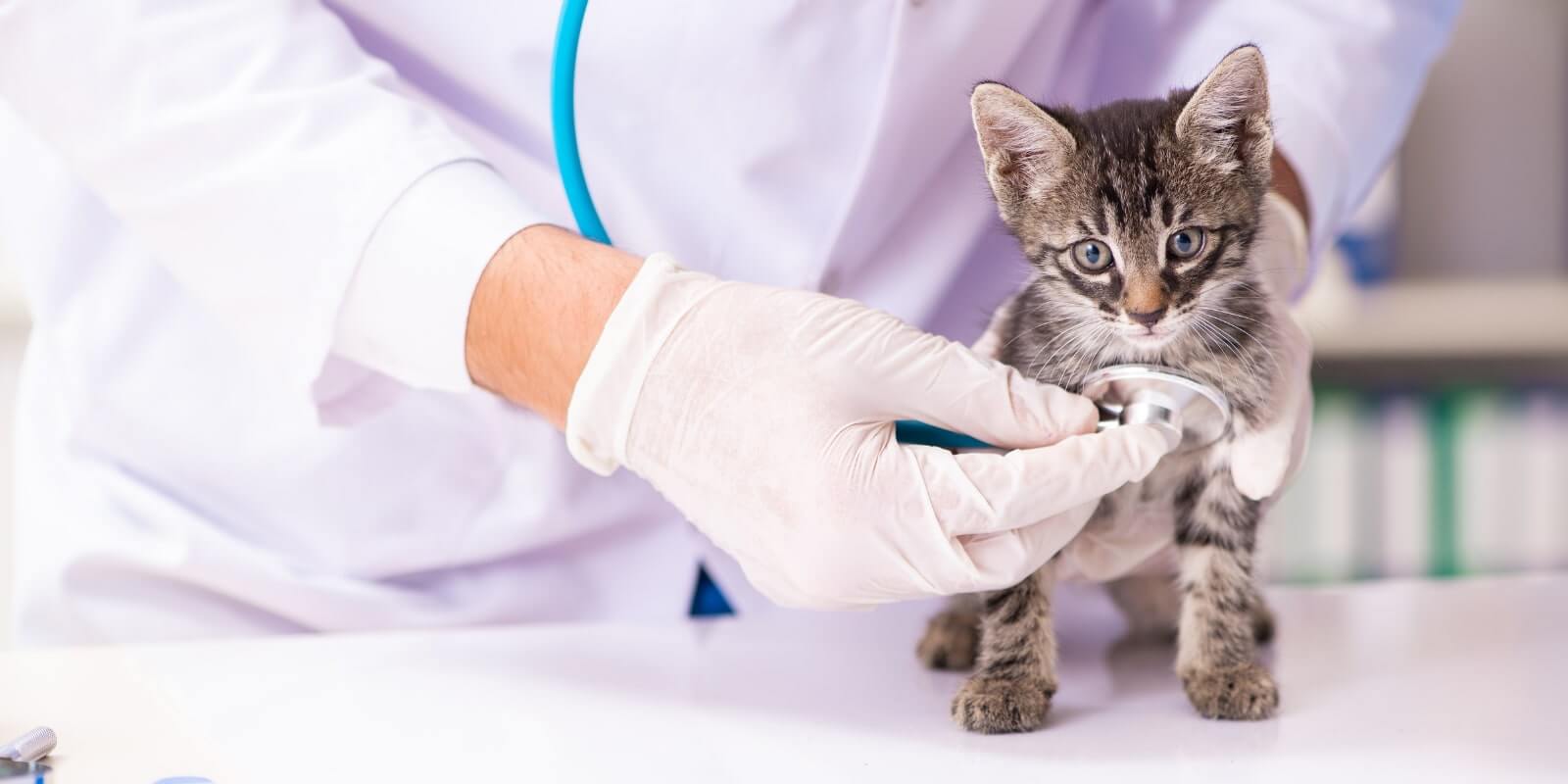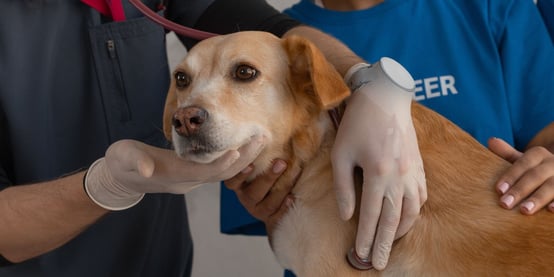Your pets need regular wellness exams at your veterinarian's office for the same reason you visit your family doctor and dentist: early detection of problems. When problems are caught early, there is a greater chance of treatment success and potentially less involved costs.
Benefits of Pet Wellness Exams
When your cat or dog is examined while they're healthy, your vet can see their "normal" state or baseline. They know how your pet looks, acts, and feels, and they can develop a medical history that tracks their health progress as they age. Suppose your pet’s breed makes them more prone to a specific condition (such as Retrievers and Pugs being prone to hip dysplasia), or your pet is beginning to develop an illness. In these cases, if your vet has been seeing your pet regularly, there’s a better chance they can detect that disease or illness early and begin treatments to cure or slow its progress.
Your pet can't tell you how they're feeling, but you may observe unusual behaviour like licking their paws, hiding under the furniture, or not eating. A history of wellness exams can help your vet identify and diagnose what your pet is experiencing.
What to Expect During an Annual Wellness Exam
Annual wellness exams also provide essential information about your pet's diet and exercise. Your vet will inform you if your dog or cat’s weight is a health risk factor and recommend a program to help.
During your pet's wellness exam, the vet will typically evaluate various health indicators, such as:
- Body condition score: ensuring your pet is at the correct weight for their frame and breed
- Eyes: evaluating for appropriate vision, cataracts, redness, discharge, degenerative changes
- Ears: looking for evidence of infection (bacterial or fungal) or ear mites
- Heart: listening for a murmur or irregular heart rhythm
- Lungs: listening for abnormal sounds (like wheezing) and coughing
- Mouth: evaluating for issues like broken teeth, tartar and periodontal disease, bad odour, and masses
- Skin and Coat: checking for fleas & ticks, rashes, lumps, or hair loss
- Mobility: ensuring the limbs are free of pain when walking and standing
- Abdomen: checking for the presence of any pain, organ abnormalities, or masses
- Rectal Exam: evaluating for the presence of masses or anal gland issues
- Immunizations: making sure your pet is current and protected against diseases we can vaccinate for
Your veterinarian may also perform several tests, including:
- Blood tests
- Urine tests
- Fecal tests (to evaluate for intestinal parasites such as roundworms, hookworms, and whipworms)
- Heartworm test
- Thyroid hormone test
- Blood pressure
How Effective Are Wellness Exams?
A vet can find the beginnings of a health issue that might cause more significant problems if left untreated. It can help your pet live a longer and healthier life physically and emotionally. If an ounce of prevention is worth a pound of cure, then wellness exams can help prevent many long-term problems that other pets may experience.
When to Schedule Your Pet's Annual Wellness Exam
At a minimum, your veterinarian will need to see your pet every year. As your pet ages, you may want to increase the number of visits each year, especially if they are geriatric or are already dealing with health issues. Most veterinarians will let you schedule your exam for a year after completing your last visit. Speak with your veterinarian about how often your pet should visit the vet.
How Should You Prepare for Wellness Exams?
Your vet may need you to collect your pet's stool or urine samples at home. For some blood tests, your veterinarian may need you to withhold your pet’s food for several hours before the test. If your pet has received vet care somewhere else, please bring their prior health records.
Your veterinarian will want a complete food history, including pet food, treats, and table scraps. The brand and type of pet food you give your pet are important, so it's a great idea to take a picture of the bag with your phone. You should also bring a list of medications and supplements your pet takes and how often.
If anyone else in the family has noticed odd behaviour, it's a great time to raise those concerns with your veterinarian. It can be especially helpful to write down a list of questions and concerns. Your veterinarian will want to make sure you have all your questions answered before you leave the appointment.
Does Furkin Pet Insurance Pay for Wellness Exams?
Although most pet insurance policies do not cover routine and preventive care, some preventive expenses, such as annual wellness exams and flea & tick medication, may be included in wellness add-on packages. Understanding your policy's coverage will help you make intelligent decisions about your pet's medical care and quality of life. Learn more about what is included under Furkin Pet Insurance.




